[ad_1]

Anna Mable-Jones, 56, lost a decade to cocaine addiction. Now an owner, she started a small business and says life is “amazing.” Walter Ray Watson/NPR hide caption
toggle subtitle
Walter Ray Watson/NPR
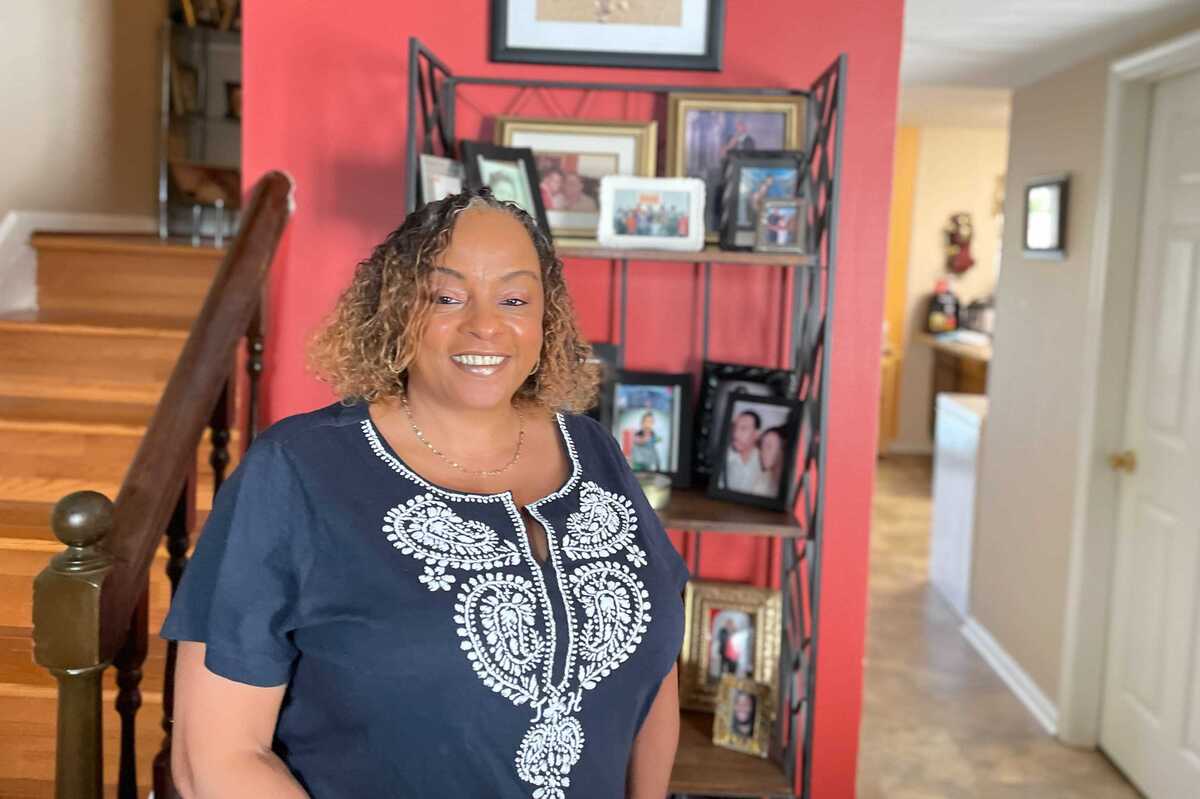
Anna Mable-Jones, 56, lost a decade to cocaine addiction. Now an owner, she started a small business and says life is “amazing.”
Walter Ray Watson/NPR
The United States is facing an unprecedented increase in drug-related deaths, and the Centers for Disease Control and Prevention is reporting another grim milestone this week.
In a single 12-month period, fatal overdoses claimed 101,623 lives.
But researchers and drug policy experts say the heavy toll hides an important and hopeful fact: Most Americans who experience alcohol and drug addiction survive.
They recover and go on to live full and healthy lives.
“This is really good news, I think it’s something to share and be hopeful about,” said Dr. John Kelly, who teaches addiction medicine at Harvard Medical School and directs the Recovery Research Institute. of Massachusetts General Hospital.

Kelly co-authored a peer-reviewed study published last year that found that approximately 22.3 million Americans, more than 9 percent of adults, are living in recovery from some form of substance use disorder. substances
A separate study published by the CDC and the National Institute on Drug Abuse in 2020 found that 3 out of 4 people who experience addiction recover.
“That’s a huge, you know, 75 percent,” Kelly said. “I think it goes against our cultural perception that people never get better.”
Life after addiction is not only possible. It’s the norm
Americans often see the more destructive side of addiction, drug crime, people stuck in doorways, and family members spiraling down.
Less visible are the people who survive the disease and rebuild their lives.
“We are literally surrounded by people who are in substance use disorder recovery, but we don’t know it,” Kelly said.
Anna Mable-Jones of Laurel, Md., is one such success story. In college, he began experimenting with crack cocaine.
“That just sent me into a total downward spiral,” the now 56-year-old said.

Mable-Jones lost a decade to addiction, entering rehab and relapsing repeatedly. It was a terrifying time for her and her family.
“My mother [started] calling funeral homes,” he recalled. “She would call my sister and say … ‘I haven’t heard from Anna.’ “
But in a pattern researchers say is common, Mable-Jones’ disease eventually went into remission. He found a treatment that worked and has been drug-free for over 20 years.
“Things that I thought I would never win again, through the recovery process I have them all,” he said. “Today I am an owner, I have a car, I started my own business.”
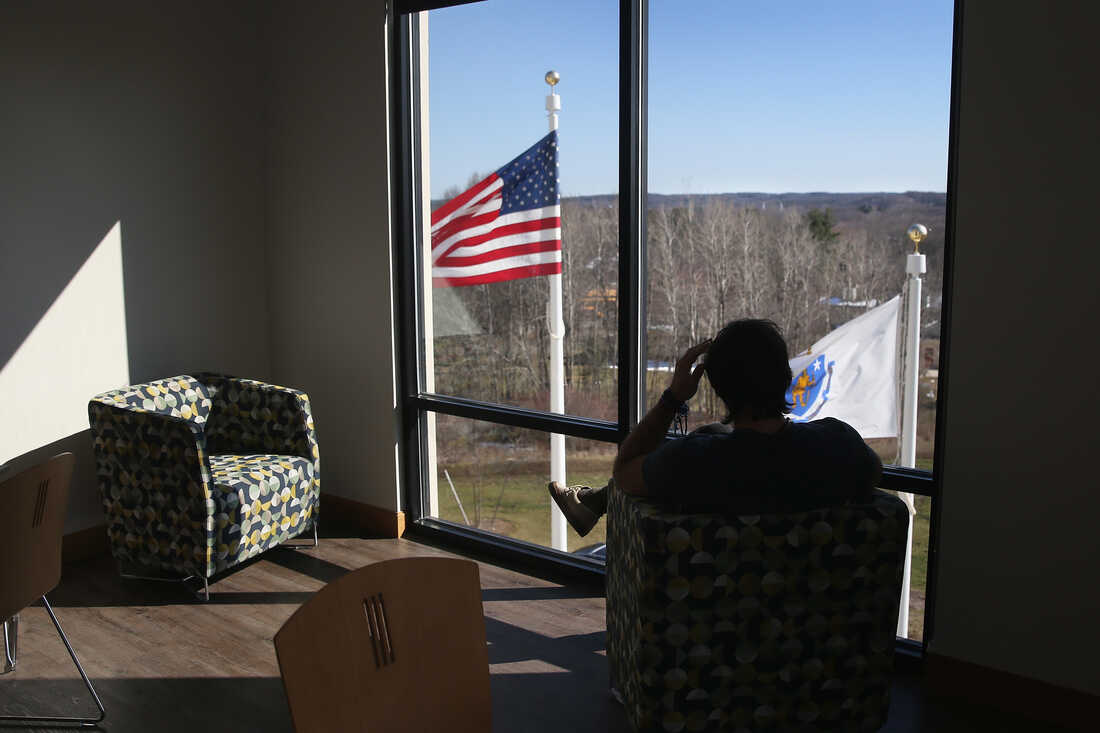
A person in drug addiction recovery looks on from a substance abuse treatment center in Westborough, Massachusetts. John Moore/Getty Images hide caption
toggle subtitle
John Moore/Getty Images
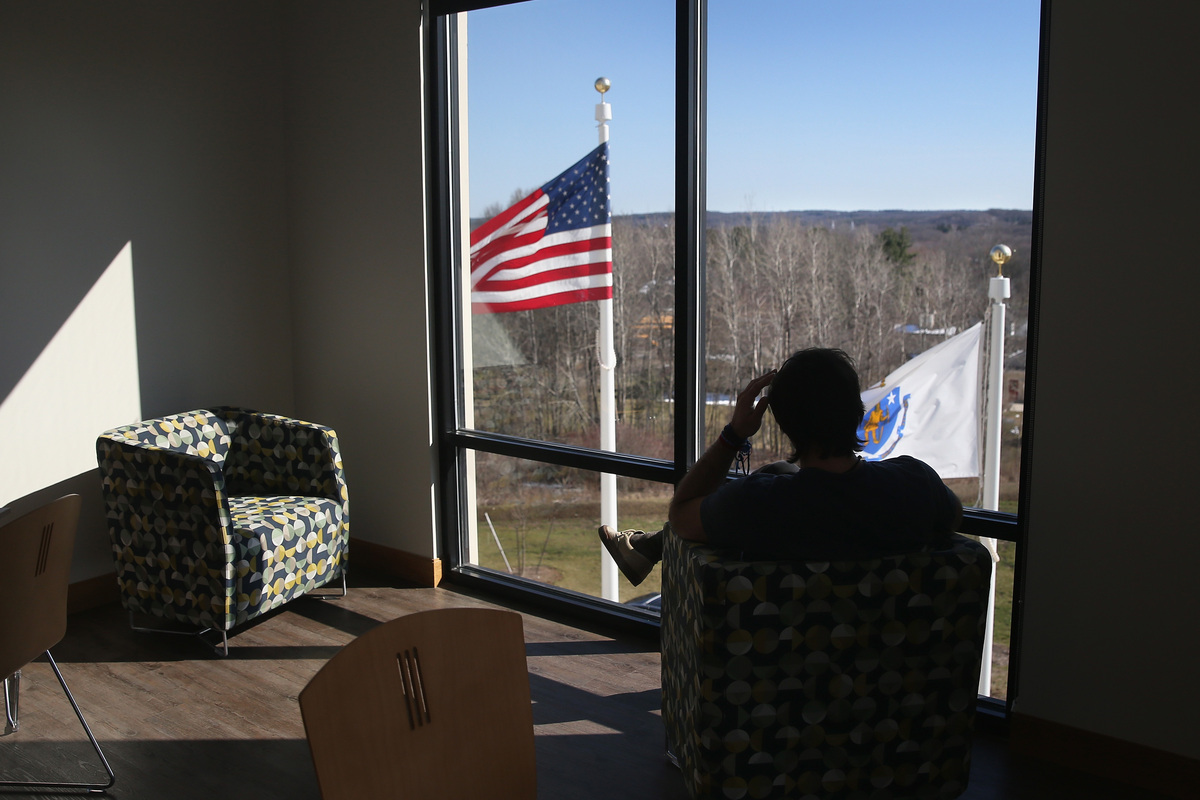
A person in drug addiction recovery looks on from a substance abuse treatment center in Westborough, Massachusetts.
John Moore/Getty Images
Addiction is hard to beat, and that leads to stigma
Researchers say this data, and this lived experience, contradicts a widespread misperception that substance use disorder is a permanent and often fatal condition.
While tragic, the 100,000 fatal drug overdoses last year claimed the lives of a small percentage of the 31.9 million Americans who use illegal drugs.
Similarly, the approximately 95,000 deaths each year in the US attributed to alcohol represent a fraction of high-risk drinkers.
So why is this disease often characterized as incurable and hopeless?
Recovery experts say one reason is that addiction is excruciating and difficult to treat.
“Hopeless desperation, that’s a good way to describe it,” said Travis Rasco, 34, who lives in Plattsburgh, a small industrial town in upstate New York.
“I wanted to quit, I just couldn’t,” she said, describing her decade-long struggle with heroin.

Travis Rasco used heroin for a decade. He has now been drug free for four years, has a career, a wife and a baby. Brian Mann/NPR hide caption
toggle subtitle
Brian Mann/NPR
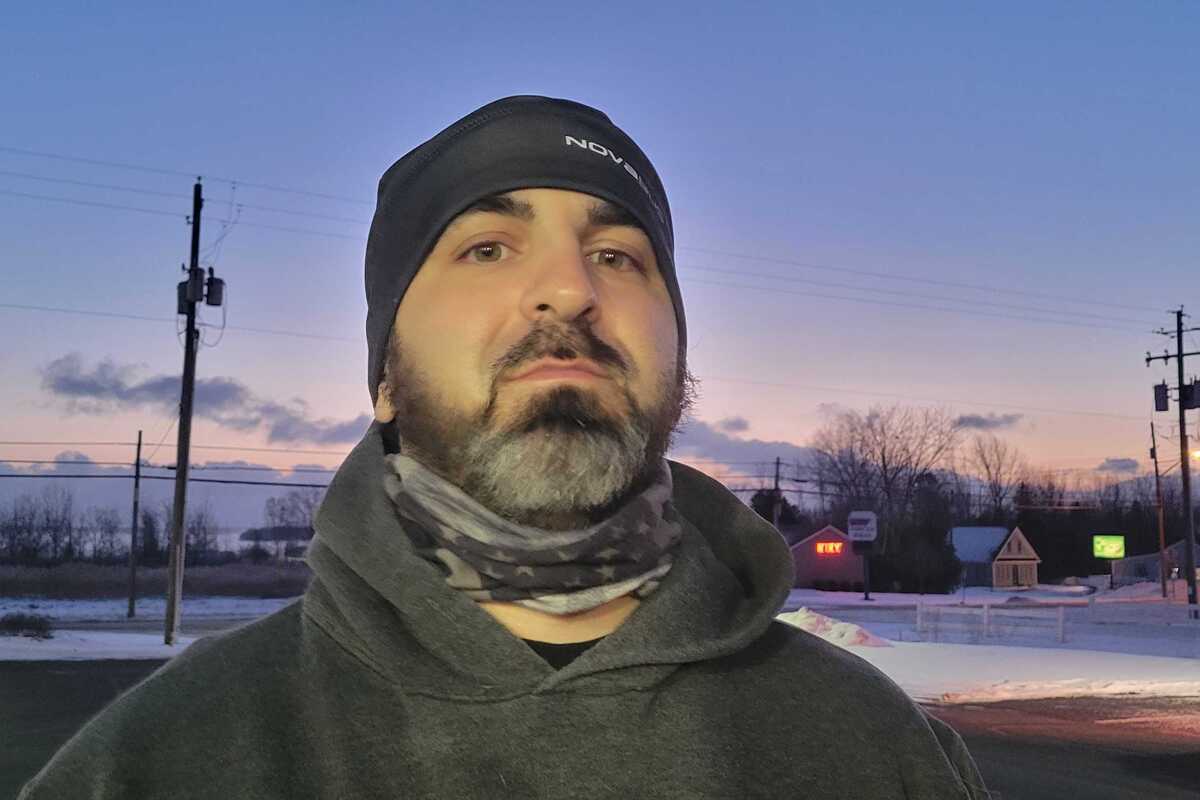
Travis Rasco used heroin for a decade. He has now been drug free for four years, has a career, a wife and a baby.
Brian Mann/NPR
Rasco relapsed again and again, causing enormous pain to his family. “I didn’t want to be that person, but I didn’t know what to do,” she said.
Studies show that people usually recover, but as with Rasco and Mable-Jones, the process happens slowly after multiple relapses.
It usually takes eight years or more to achieve long-term remission, even with high-quality treatment and medical care.
Rasco was working two jobs to feed his heroin habit when he finally found a way forward in 2018.
“I had quite a long ambulance ride [after an overdose] and something happened in that ambulance,” he said, describing an emotional pivot that felt different: “This is not the way to live.”
He was also able to convince his insurance company to pay for long-term treatment.


“They fought to keep just me [rehab] for 14 days; they didn’t want to pay 30, and I knew it wasn’t enough,” Rasco recalled. “They didn’t want to put me in a halfway house. I knew I needed a halfway house.”
This time it worked. He has now been drug free for almost four years, is married and has a baby.
“We’re trying to buy a house right now. Something I never thought would be possible, something I never thought I deserved for a long time,” Rasco said.
After healing, a better life
Recovery rates are not the same for all people. There are big differences in how the body and brain respond to alcohol and different drugs.
Studies also show that racial bias makes it harder for black and Hispanic Americans to find treatment. People in rural areas tend to have less access to health care.
Meanwhile, those with more financial resources or milder forms of addiction often recover faster.
But even people who use harder drugs for long periods usually recover.

“That 75% number. [of people who achieve remission] obviously includes people on the more severe end of the spectrum,” said Dr. David Eddie, co-author of the study on recovery success and also teaches at Harvard Medical School. “So there is absolutely hope “.
In fact, most people don’t just survive addiction. Research suggests that they often thrive in long-term recovery, reconnect with family, and enjoy financial success.
“They end up achieving things they wouldn’t have achieved if they hadn’t gone through the hell of addiction,” Eddie said.
The researchers say these hopeful findings are significant because they may inspire people to keep trying for recovery even after suffering multiple relapses.
“That can be a hard thing to deal with,” Eddie said. “How do you keep getting on the horse after repeated failed attempts?”
Is fentanyl a game changer?
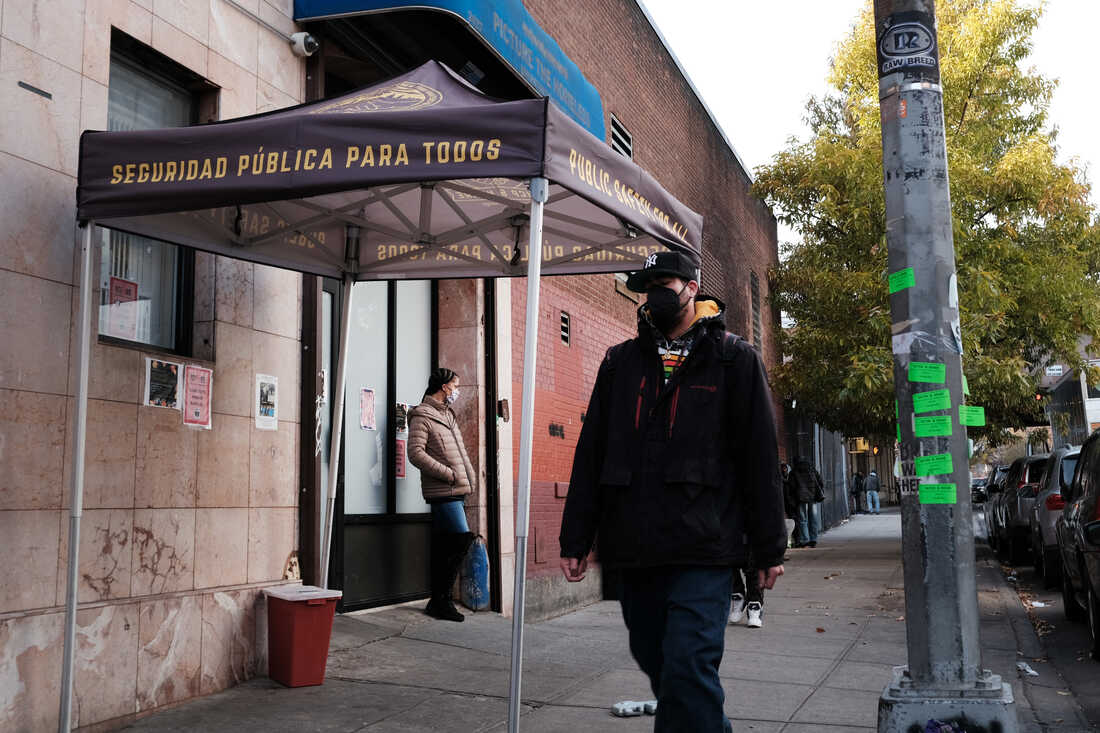
People walk past an East Harlem health clinic that offers free needles and other services to drug users in New York. Spencer Platt/Getty Images hide caption
toggle subtitle
Spencer Platt/Getty Images

People walk past an East Harlem health clinic that offers free needles and other services to drug users in New York.
Spencer Platt/Getty Images
A troubling question is whether this pattern, multiple relapses leading to eventual recovery, will continue now that more street drugs are tainted with the deadly synthetic opioid fentanyl.
“It’s killing them on the first try,” Anna Mable-Jones said. “He’s not giving them enough tries, like maybe I’ve had.”
Some communities are trying to help, providing active drug users with clean needles and making the overdose reversal drug Narcan more widely available.

New York City recently opened the nation’s first official safe drinking clinics, where people with substance use disorders can use drugs under medical supervision.
Eddie said his research suggests more needs to be done to keep people alive while the healing process works.
“No one recovered from addiction died. My feeling is that if we can keep people alive long enough, we know that eventually most recover,” he said.
Travis Rasco, of upstate New York, says he’s thankful he’s had enough time, enough opportunities and enough help to rebuild his life.
“I have all the good things in life that everyone talks about,” he said. “I’m worthy of that too. Once you get to that place it’s pretty liberating.”
[ad_2]Source: Most people with alcohol and drug addictions survive: NPR
Methadone Clinic Near Me – Methadone Clinics New York – Methadone Clinics USA















